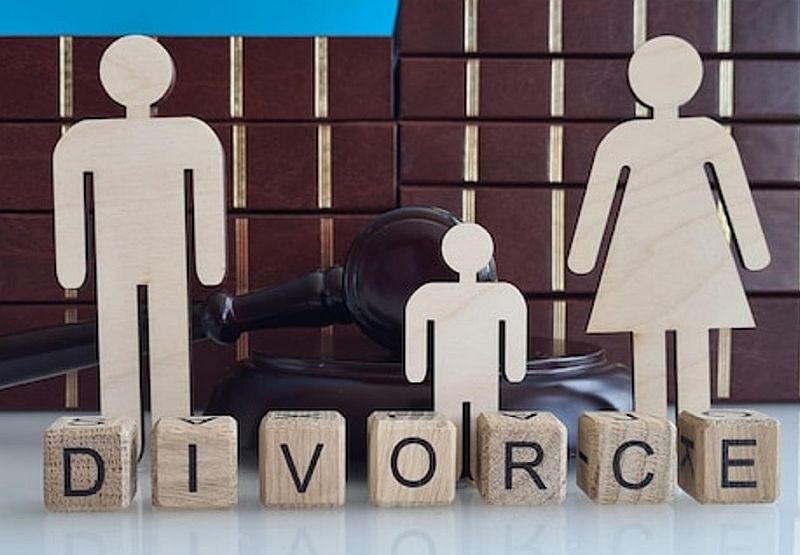“Find a place inside where there’s joy, and the joy will burn out the pain.”
Joseph Campbell
Recognize and accept your emotions
It’s normal for people to experience pain in divorce, and it manifests itself differently for everyone. Some experience intense grief, while others may feel relief mixed with sadness. Either way, it’s important to accept all emotions and process them in a healthy way, rather than repressing or ignoring them.
Embracing and acknowledging your emotions is crucial when considering an online divorce in Florida. Granting yourself the patience and understanding needed during this challenging phase is essential, as it’s natural to experience both positive and negative moods. Keep in mind that the healing process requires time. Enlisting the support of friends, family, or professionals who are understanding and attentive allows you to articulate your emotions and progress with assurance.
By recognizing and accepting the emotions associated with the challenges of divorce, you provide yourself with the opportunity to evolve and transition towards a new and improved life.

Seek professional support from a therapist or counselor
A therapist or counselor can:
-
help you understand and accept the pain of divorce;
-
offer valuable information about coping mechanisms;
-
provide tools for stress management;
-
familiarize you with methods to restore self-esteem;
-
provide impartial support without judgment;
-
provide practical advice on how best to cope with difficulties along the way.
Through regular therapy sessions, you will better understand yourself, uncover the patterns that contributed to the breakdown of your marriage, gain opportunities for personal growth, and develop strategies for moving forward with confidence.
Qualified professionals are guaranteed to help people heal from emotional trauma, including divorce. Remember that seeking professional support is not a sign of weakness but rather an act of strength, as mental health should be a priority during this difficult period.
Take care of your physical health by exercising regularly and eating a balanced diet
Taking care of your physical health is crucial during the difficult transition period of divorce. Exercise has been shown to release endorphins, which improve mood and help alleviate feelings of sadness or anxiety. Regular physical activity also helps you stay fit and promotes mental well-being by reducing stress and improving sleep.
Eating a balanced diet is also important and plays an important role in managing the pain of divorce. Eating nutritious food:
-
provides the body with essential nutrients;
-
helps to function optimally and actively;
-
It increases energy levels and overall mood.
Avoiding processed foods and eating fresh fruits, vegetables, lean proteins, and whole grains will have a positive impact on both your physical and emotional well-being during this difficult time.
It is important to understand that holistic self-care is essential to healing from the pain of divorce. By incorporating regular exercise into your daily routine and eating a healthy diet, you give yourself the strength to get through this difficult period with confidence and resilience.
Engage in self-care activities that bring you joy and pleasure
During the process of healing from divorce pain, you should prioritize self-care that brings you joy and relaxation. Providing a much-needed escape from the emotional turmoil of divorce can include:
-
Drawing;
-
playing an instrument;
-
gardening;
-
dancing;
-
any hobby or interest you are passionate about.
These activities will allow you to focus on something positive and enjoyable instead of sadness or anxiety.
In addition to hobbies, relaxation techniques can help reduce the stress associated with divorce pain. These can include:
-
meditation;
-
deep breathing exercises;
-
yoga;
-
taking soothing baths.
These activities promote mindfulness and help calm the mind and body, minimizing anxiety.
It is important to realize that self-care is not selfishness. By taking time to do things that bring you joy and practicing relaxation techniques regularly, you develop both mentally and emotionally. This will not only help you heal from the pain of divorce but will also give you the opportunity to restore a sense of harmony and find happiness in your life again.

Surround yourself with a strong support network of friends and family
When going through the complex emotions of divorce, it is extremely important to surround yourself with a strong support network. Having close people who love and care about you will provide emotional comfort and understanding during this difficult time. Reach out to those who have been through similar experiences or have supported you in the past. They can:
-
offer guidance;
-
Listen without judgment.
-
Simply be there when you need someone to rely on.
-
help take your mind off the pain of divorce;
-
Participate in activities that bring joy and laughter to your life.
Plan to spend your free time with your loved ones. These can be movie nights, evening walks, or weekend vacations. Through such communication, you will create new memories and make sure that life goes on despite the pain of divorce.
Remember that in order to heal from the pain of divorce, you need to surround yourself with positive influences. Don’t neglect your support system. Allow your family and friends to give you strength and comfort as you go through this difficult chapter of your life. With their love and support, you will find comfort in knowing that you are not alone on your journey to healing and a new and happy life.
Set realistic goals, both short-term and long-term
Setting realistic goals is a very important step in overcoming the pain of divorce. These goals give you a sense of purpose and direction, helping you navigate the healing process. You should start by setting small, short-term goals that will give you a sense of accomplishment along the way. It can be something as simple as creating a daily self-care routine or taking up a new hobby.
It’s also important to set long-term goals that align with your values and aspirations. They can serve as motivators to help you move forward despite the pain of divorce. Long-term goals give you something positive to focus on, such as
-
continuing your education;
-
changing careers;
-
traveling to new places.
Don’t overwhelm yourself with too many goals during this journey. Recognize that progress is not always linear and that setbacks are normal. Adjusting expectations and celebrating even the smallest achievements helps build resilience and gives you hope for a brighter future.
Find new hobbies or interests to distract yourself
Exploring new hobbies or interests is a surefire way to take your mind off the pain of divorce and engage in positive activities. By immersing yourself in something new and exciting, you allow your mind to move away from thinking about the past and focus on the present moment. Moreover, facilitating an emphasis on personal development and self-discovery can be aided by the following things:
-
drawing;
-
learning to play a musical instrument;
-
joining a sports team;
-
gardening;
-
doing something that brings you joy and satisfaction.






